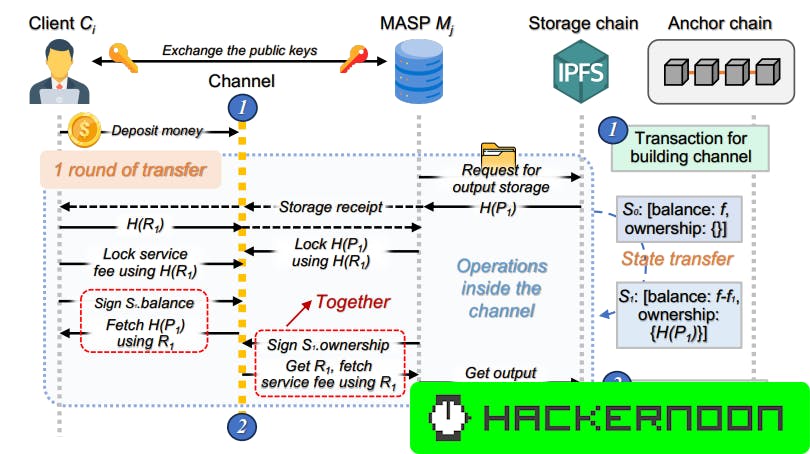#reputation-management
#reputation-management
[ follow ]
#public-relations #social-media #seo #crisis-management #cybersecurity #crisis-communication #content-strategy
Information security
fromSecuritymagazine
1 week agoThe Post-Breach Narrative: Winning Back Trust After the Headlines Fade
Rebuilding trust after a cybersecurity breach requires sustained, transparent, aligned communications that demonstrate accountability, empathy, and strategic action across internal and external channels.
Marketing
fromBusiness Matters
1 month agoExecutive Reputation Management Experts: 6 Premier Firms That Can Shield C-Suite Leaders
C-suite executives' personal and corporate reputations are tightly linked and require proactive, sophisticated digital reputation management to mitigate scrutiny and long-term risks.
Travel
fromIndependent
2 months ago'We still have people asking if I was the one who wrote it' - can Tripadvisor reviews still make or break Irish businesses?
Tripadvisor reviews profoundly shape Irish hoteliers' reputations and bookings, producing both beneficial praise and damaging, sometimes exaggerated or false, complaints.
Public health
fromLondon Business News | Londonlovesbusiness.com
2 months agoThree ways Legionnaires' Disease can damage your business and reputation - London Business News | Londonlovesbusiness.com
Legionnaires' disease outbreaks from poorly maintained water systems can devastate businesses legally, financially, and reputationally.
Law
fromLondon Business News | Londonlovesbusiness.com
2 months agoWhen a road collision turns into a criminal case with business at stake - London Business News | Londonlovesbusiness.com
Serious car crashes can trigger criminal charges that threaten professional reputations, corporate operations, and financial stability, requiring coordinated legal, HR, and communications responses.
fromForbes
3 months agoThe Crisis Playbook Addition Every Leader Needs
Crises rarely start with a press release or a breaking news segment. More often, they emerge quietly on social media-an offhand comment from a customer, a trending hashtag, a viral video-before quickly snowballing into something far bigger. For marketing leaders, the lesson is clear: Reputation can take years to build and seconds to erode. Yet too many crisis management playbooks still rely on slow, traditional escalation paths that leave brands reacting far too late.
Marketing
fromSocial Media Explorer
4 months agoHow HVAC Service Owners Can Use Social Media to Connect with Local Customers - Social Media Explorer
For decades, a great reputation was built by word-of-mouth, a fleet of clean trucks, and an ad in the local phone book. But today, the "town square" where your reputation is built and discussed has moved online. Your potential customers are on social media every single day, and if you're not there to be a part of the conversation, you are invisible. This is where a smart, local social media strategy becomes your most powerful asset.
Online marketing
fromHarvard Business Review
4 months agoWhen Fake News Targets Your Company
ADI IGNATIUS: I'm Adi Ignatius. ALISON BEARD: I'm Alison Beard, and this is the HBR IdeaCast. ADI IGNATIUS: All right, so, Alison, did you know there is a social media report that says the lead article in last month's Harvard Business Review is actually a coded prophesy for the end of the world, and this thing is going crazy viral? ALISON BEARD: Wow, that is highly alarming; I didn't know that. ADI IGNATIUS: Well, because it of course didn't happen. ALISON BEARD: [Laughing] ADI IGNATIUS: And that's really the topic of this week's IdeaCast: fake news and how companies can respond to it.
Business
fromForbes
4 months agoHow To Remove Negative Press And News Articles On Google
The first thing to understand is that bad press on Google is rarely the product of just one thing. If that were the case, you would likely ignore the tiny bit and move on. The failure to bury negative search results in the first place tends to start with a lack of positive information about you or your business online. Your first step is to build a positive online presence. Your company should be producing positive news and content across a variety of channels.
Online marketing
fromForbes
5 months agoAttention CEOs: 5 Tips To Crisis-Proof Your Brand Image
Press releases, media appearances and community engagement used to be the sole factors that determined public perception. Companies controlled the message, content and virtually everything known to the public about their operations, leadership and point of view on issues. Today, all of that has changed. Social media has brought incredible transparency to corporate branding, for better or worse. Now, your customers, employees, business partners and suppliers seemingly all have equal influence over your brand image.
Marketing
fromMarTech
5 months agoHow to Protect and Control Your Brand Reputation in AI Search | MarTech
Brands must actively manage their online narrative to ensure consistent and positive messaging across all channels where AI learns and surfaces information. This is essential to avoid being defined without their direct input.
Digital life
fromIndependent
5 months agoDear Vicki: 'We have a Coldplay concert situation in our office. What should I do about it?'
The ongoing situation in the tech company mirrors the recent controversy involving the Coldplay concert, highlighting the ramifications of personal relationships within a professional setting.
Business
fromEntrepreneur
6 months agoHow to Remove Bad Press - and Reclaim Your Online Reputation Fast | Entrepreneur
Negative press can lead to significant repercussions, including lost trust, a damaged reputation, and missed opportunities. Addressing harmful content promptly is crucial.
Privacy professionals
fromEntrepreneur
6 months agoHow to Deal With Negative Articles on Google | Entrepreneur
Building a strong brand means recognizing potential reputation crises and knowing how to handle online articles that misrepresent you or your business. Negative press on Google can erode customer trust and disrupt your operations. Burying negative search results can be complex, time-consuming and cost a fortune that in the long run will negatively affect the financials of your company or your career.
Online marketing
Social media marketing
fromForbes
7 months ago5 Steps For Building An Online Brand That Connects And Compels Action
A robust online presence is vital for brand success, enhancing communication and customer advocacy.
Consistent online profiles are necessary for building brand credibility and trust.
Engaging content strategies help establish presence and authenticity.
Social proof in storytelling is crucial for enhancing brand credibility.
Media industry
fromExchangewire
8 months agoFrom Risk to Reward: Navigating Brand Safety in 2025
Advertisers' fear of reputational damage leads to excessive brand safety measures, stifling investment in news content.
Keyword blocking is a simplistic approach that can undermine advertising on reputable news platforms.
fromwww.cbc.ca
8 months agoN.J. firm made misleading websites in names of multiple Canadians and an alleged CRA scammer | CBC News
"Arriola's name does not appear on the original publication in the 20 most recent entries on his profile and a university professor confirmed he was not involved."
Privacy professionals
Healthcare
fromDatabreaches
9 months agoUnitedHealth is demanding some struggling doctors immediately repay loans issued after last year's cyberattack
UnitedHealth is demanding immediate repayment from borrowers of its no-interest loans, contradicting previous assurances.
The company's actions raise concerns over its reputation and compliance with promises made to providers.
[ Load more ]



















